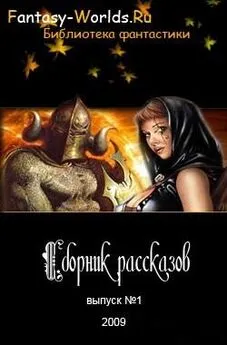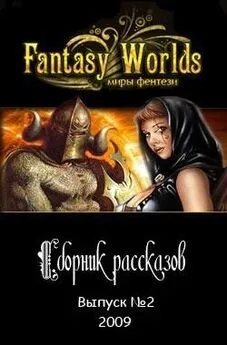Пользователь - WORLDS END
- Название:WORLDS END
- Автор:
- Жанр:
- Издательство:неизвестно
- Год:неизвестен
- ISBN:нет данных
- Рейтинг:
- Избранное:Добавить в избранное
-
Отзывы:
-
Ваша оценка:
Пользователь - WORLDS END краткое содержание
WORLDS END - читать онлайн бесплатно полную версию (весь текст целиком)
Интервал:
Закладка:
Lanny had never seen either buffalo or wild boars, and was greatly excited by the idea. The former was not the shaggy American bison, but smooth-skinned creatures that had been domesticated in Egypt and brought to Europe by the ancient Romans; now they ran wild in the forests and were very dangerous if wounded. As for the boars, they did not molest human beings - but still, it was well to have a rifle along.
After hunting through a great stretch of forest, they came upon a clearing with a tiny farm and a cottage that might have been the home of the witch in Grimm's fairy tales. They stopped to rest, and found no witch, but a peasant mother with half a dozen little ones, the boys with bullet heads and the girls with braided hair, all staring with wide blue eyes at die Herrschaften. There was only one room and a shed in back; the beds were shelves against the walls, and a good part of the room was taken up by a large stove, polished like a patent-leather shoe. Everything in the place had been manicured Ъу this lean and toilworn woman, with tendons in her arms showing like whipcords. She was excited by the visit, and ran to get milk for die Herrschaften, as she called them over and over; she stood while they drank it, and apologized because she had nothing better, and because her husband was not at home, and because she had only a hard bench for them to sit on, and so forth. When they left, Lanny looked back and saw a pile of children's faces in the window of the hut, and it stayed with him as one of the sights of Germany.
They returned with a large bag of game, and a still larger appetite. They had a meal to match it, with half a dozen courses of meats and fowl. When they rose from the table they all took hands and danced gaily around it, crying "Mahlzeit!" Afterward they gathered round the piano and sang sentimental songs in melting voices, also Kurt and his guest were asked to show what they had learned at Hellerau. Lanny was echt deutsch that night, and stowed in his memory two lines of poetry which his friend quoted, to the effect that when you hear singing you may lie down in peace, because evil people have no songs.
VII
" Frцhliche Weihnachten" said everybody next morning, for it was the day before Christmas. The young people took a long sleigh ride and saw the country, and in the afternoon they played music, and Lanny danced with Kurt's sister. In the evening the Christmas celebration took place, and there were presents for all the family and the servants; not under the Christmas tree, but on separate little tables, covered with linen cloths. After the tree was lighted, the presents were given out. The Herr Comptroller said a few words, and shook hands with each of his servants, and they all kissed the hand of his wife. Everything was warmhearted, everybody wished happiness to everybody else, and they sang "Stille Nachi" with tears in their eyes.
Next morning they had a preliminary breakfast, eating a long kind of bun called Dresdner Christstollen, with raisins in it and sugar on top; also eggs, and many kinds of homemade jam, and coffee with hot milk. That was supposed to carry you until half-past ten, when you had the so-called "fork-breakfast." It appeared that ideas of diet reform which were spreading among Lanny's American friends had never been heard of in this Prussian province, and such things as Hasenpfeffer, fresh pork sausage, and several other kinds of meat could be eaten in great quantities in the morning.
Later on there was to be a celebration at the Schloss, and everybody dressed, the men in uniforms and decorations, and the ladies with their jewels, silks, and laces. They came in a happy solemn mood as to a church festival. For the tenants and employees it was the one time in the year when they might pass the portals of the great building which dominated their lives. They waited respectfully outside until the last of the dignitaries had entered and taken their places; then the crowd streamed into the great hall, the men taking off their hats before they ascended the steps, the peasant women with kerchiefs or shawls over their heads, curtsying to everybody. Those for whom there were no seats packed themselves around the walls.
Seine Hocbgeboren and family came in by a private entrance, and everybody stood and said " Frц hliche Weihnachten." The pastor said a prayer, quite a long one, and they all stood again and sang a hymn, in such volume as to drown out the organ. The Graf gave them all Christmas greetings in a fatherly talk, full of assurances of concern for their welfare, and declaring the divine origin of "deutsche Treu und Werde." In their happy land, so favored by God, peace and order prevailed, and every man and woman cherished the sacred flame of loyalty in his heart. In this happy Christmas season they renewed their pledges to the Kaiser and Fatherland. The applause which followed seemed to indicate that Seine Hochgeboren was completely justified in his faith.
A great fir tree out of the forest stood in a corner of the hall, and there were presents for everyone, even to the toilworn peasant woman and the half dozen little ones who had stared at Lanny out of the window of the hut. Four men in uniform called the names on the packages and handed them out; but even with this procedure it took long to distribute them all. Not a person left the hall; and Seine Hochgeboren shook hands with each man and woman. Lanny was not bored, because these were Kurt's people, and he was interested to watch their faces and their costumes.
Next day the Comptroller-General went to report to his employer upon the state of affairs. He was invited to a smoker that evening, together with his eldest son. Other neighboring land owners came, and several of the higher officials of the estate, the chief of police, the head forester, and so on. Over pipes and beer they discussed the state of the country, both local and national, and the Graf honored them by reporting upon matters of importance on which he had special sources of information. The following evening Herr Meissner told his family what had gone on at this smoker, and gave his own views of the matters discussed. Everybody in the household listened respectfully to what the stout and imposing father said, and no one ventured to question anything. The guest from a foreign land could not understand all the long words, but listened attentively, and afterward had matters explained to him by Kurt.
Seine Hochgeboren had reported that other nations, jealous of German diligence and skill, had surrounded the Fatherland with a wall - die Einkreisung, was the phrase. Either that wall would be taken down by agreement, or it would have to be broken, because the Germans were a growing people, and would not be denied their place in the sun. The Graf had spoken of a dark cloud of barbarism in the eastern sky, and by that, of course, he meant Russia. The nobility and land owners of Upper Silesia got along well with their neighbors, the nobility and land owners of the Tsar's realm, and had no quarrel with them; but they were exasperate'd by the alliance with France, which was putting up huge sums of money for the arming of Russia. For what purpose? the Graf wished to know. There could be but one answer - a contemplated attack upon Germany.
Also, Seine Hochgeboren had talked about enemies within the Fatherland; he described them as rats, gnawing and nibbling. Of course he meant the Social-Democrats, said Herr Meissner. They had no strength in Stubendorf, where the good old ways prevailed; but in all the industrial districts they never ceased their hateful agita-
tion, and at the next elections to the Reichstag they might win an actual majority. If that happened, steps would undoubtedly have to be taken to put them down by force.
Lanny was moved to tell his friend Kurt about his visit to the "cabbage patch" of Cannes. He didn't mention that he had an uncle who was a "red sheep" - that was too terrible a family secret; he said merely that somebody had taken him to meet a woman "Red," and he had been deceived into thinking that she was a good person. Kurt replied: "No doubt many of these agitators are sincere fanatics. Indeed, it's rather the fashion nowadays to say smart and cynical things against the government." He added: "There's more Socialist sentiment in Silesia than perhaps Seine Hochgeboren realizes; there are many coal mines in the province, and in the open portions are large industries and a lot of discontent among the workers."
Kurt talked in his usual lofty way about social problems. He said that art and culture would filter down from the cultivated classes and ultimately would civilize and regenerate the common people. He was especially certain that the artist must hold himself above the squabbles of politics. Solemnly he declared: "Just as knowledge is power, so is beauty; those who create it are masters of the Idea, which precedes everything in human affairs. As the idea of the chair comes before the making of the chair, so the idea of beauty, goodness, justice, has to be nourished in creative minds. In the beginning was the Word" - and so on for a great many words.
Lanny did not know that all this was German philosophy with a capital P; that a learned professor in Konigsberg had sat in his study -with his eyes fixed upon a church steeple for twenty years, spinning mental cobwebs made of such high-sounding polysyllables. Lanny did not know that twenty-three centuries previously a wealthy gentleman of Athens of the name of Plato had walked up and down under a portico doing the same thing, and that his doctrines had spread to Alexandria, and from there had reached a Jewish enthusiast by the name of John. What Lanny thought was that his friend, Kurt Meissner, had worked up all this for himself, and he was c[uite overcome with awe.
VIII
The ten days passed rapidly, and one morning the two boys packed their belongings, said their farewells, and were driven to the station. They rode together to the junction, renewing their pledges of everlasting loyalty. At the junction their roads parted, and Kurt, whose train came first, made sure that his guest had his ticket in a safe place, and that the station master would see him aboard his train. Lanny watched Kurt depart; and then, because a cold wind was blowing, he went into the cafe of the station and ordered a cup of hot cocoa.
While he was sipping it and thinking over adventures the memory of which would always delight him, a man came into the room, looked around, and then came to Lanny's table. There were other tables, but the man appeared to be sociable, and Lanny was glad to chat with anyone in this agreeable country. The stranger said: "Guten Morgen," and Lanny returned the greeting, and at the same time took the man in with a swift appraisal.
The stranger was small, rather dark, and sallow; his hat, tie, and overcoat were lacking in those touches of elegance which meant a "gentleman." He wore glasses, and his thin face had a worried look; his fingers were stained with tobacco. He ordered a glass of beer, and then remarked: " Em Fremder, nicht wahr?" When Lanny replied that he was an American, the man began to speak somewhat hesitating English. He had seen Lanny with Kurt Meissner, and said that he knew Kurt; had Lanny been staying at the Schloss?
Lanny explained where he had been staying, and they talked about the visit. Lanny enjoyed nothing more than telling about what a good time he had had, and how kind everybody had been. The man seemed to know all about affairs at the castle. Ja, ja, he knew the Herr Comptroller-General, also his sons; they had gone back to the army. No time to be lost in the army; that very morning a company of light artillery had gone into the mountains for practice, the guns mounted on sleds, the troops on skis. Lanny said he had seen them getting off the train; wonderful how fast they had slid those guns off the flatcars. The stranger said that was part of the drill and was timed to the second. The Fatherland had many enemies and must ever be on the alert.
Читать дальшеИнтервал:
Закладка:




![Галина Романова - Лицензия на happy end [litres]](/books/1058996/galina-romanova-licenziya-na-happy-end-litres.webp)
